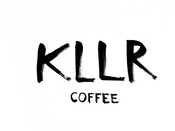It hasn't been a year since we changed our small batch, just a year since we've blogged about! Ironically, we decided to do it on another Costa Rica. Now, onto the coffee info...
We have very limited quantity of this coffee, about 300lbs green. In researching this coffee, I went down a rabbit hole of coffee production environmental impact reports in Costa Rica. Compared to other coffee producing countries who may not have the government systems in place to regulate water usage, I was amazed at all Costa Rica is doing to conserve their environment and how that directly impacts their economy in a positive way. I won't go into much detail so don't worry! But here's a little bit of what I learned:
Don Mayo Micro Mill
The Don Mayo Micro Mill is one of the oldest in Costa Rica. Established in 2003, Hector Bonilla and his sons have been innovative in creating an economic and environment sustainable farm-to-mill umbrella under the Bonilla Family Estate.Environmental conservation is extremely important to Costa Rica as a whole, and is guarded in the laws and regulations highlighting food production. Nothing goes to waste on a Costa Rican coffee farm and everything is done to minimize the use of water. Coffee pulp and parchment are used as fuel for cooking and for mechanical dryers, and also as a fertilizer. Water usage is minimized due to water restrictions put in effect by the government. Water that is used to wash coffees becomes toxic after removing the pulp from around the coffee beans, so in order to avoid contaminated runoff, restrictions were placed on this method of ‘fully washed’ processing coffee. As a result, you will not see any fermentation tanks in Costa Rica (except for a few larger mills that have the proper water filtration equipment).
This particular lot is from Finca El Llano, which is one of 10 estates owned by the Bonilla Family and sits in the West Valley. Once harvested, they use a pretty incredible machine made by Penagos that mechanically de-pulps and removes the mucilage from the coffee with minimal water usage. After washing, the Bonilla’s do all the dry milling themselves, cutting out the extra costs of transporting to a dry mill. They are able to oversee the coffee processing from the time it is harvested to the milled green coffee.
In the cup, this coffee is very approachable with notes of raw sugar, dried apple, toffee nut, and cocoa.
Region: Leon Cortez, Tarrazu
Farm: El Llano
Altitude: 1650-1900 meters
Cultivar: Caturra, Villa Sarchi
Process: Machine Washed and patio dried
Below is a video of the Penagos at work!
